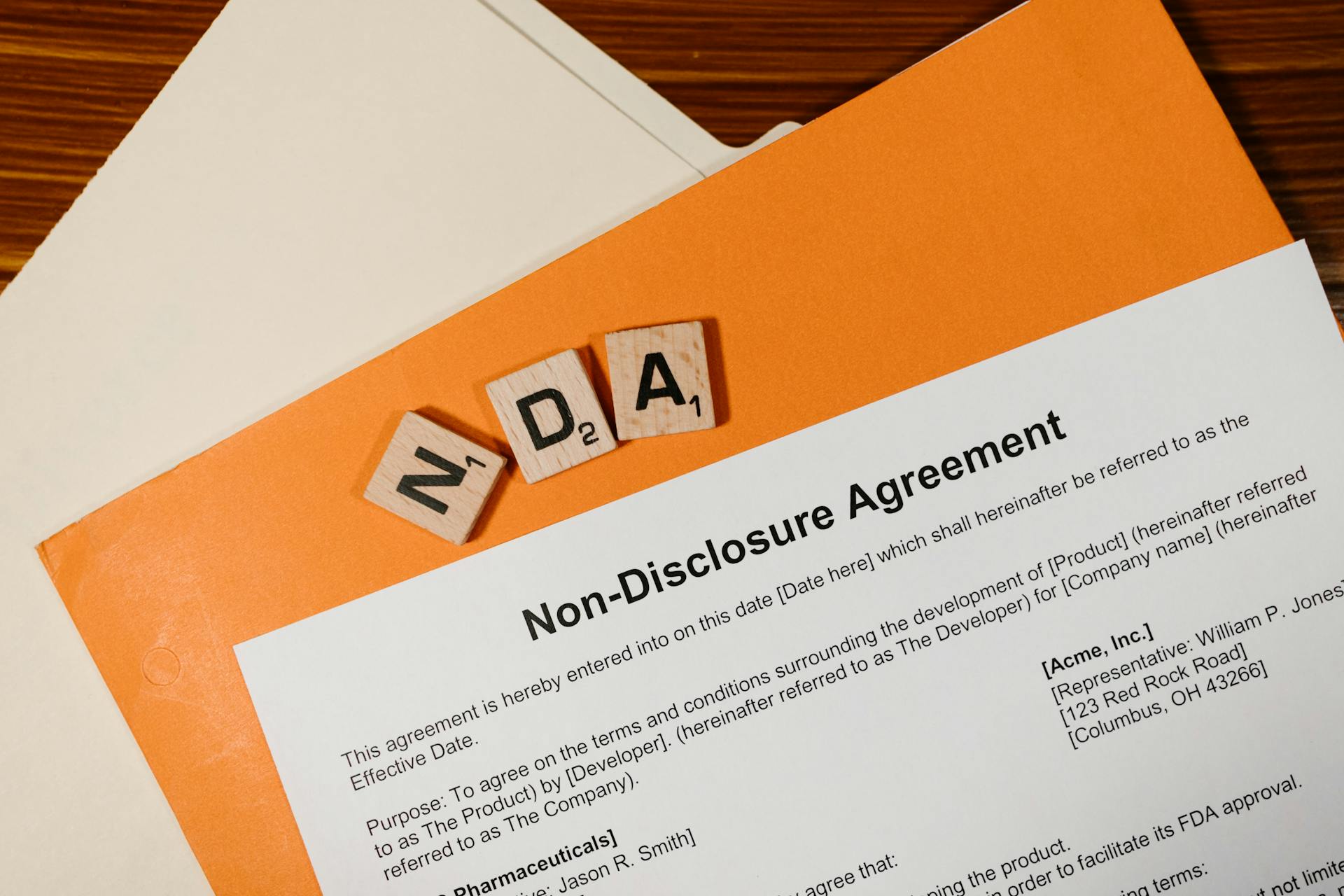
Covered entities must implement a HIPAA sanction policy to ensure compliance with the Health Insurance Portability and Accountability Act.
The policy should outline the procedures for imposing sanctions on employees who violate HIPAA rules.
The policy must also specify the types of sanctions that can be imposed, such as disciplinary action, termination, or other penalties.
Sanctions can be imposed for various HIPAA violations, including unauthorized disclosure of protected health information.
Regulation and Enforcement
The U.S. Department of Health and Human Services (HHS) is responsible for maintaining HIPAA rules and regulations.
The Office for Civil Rights (OCR) within HHS investigates reports of HIPAA violations and breaches, and addresses non-compliance by imposing penalties, fines, and other sanctions on violators.
For over a decade, the OCR has published announcements of violations and breaches, and posted detailed press releases on their website.
This transparency helps to ensure accountability and provides a clear understanding of the consequences of non-compliance with HIPAA regulations.
Readers also liked: Who Is Responsible for Implementing and Monitoring the Hipaa Regulations
Policy
A well-crafted HIPAA sanction policy is essential for maintaining patient confidentiality and avoiding costly fines. It's a written document that outlines the consequences of violating HIPAA regulations.
The policy should clearly define the standards for HIPAA compliance and explain how HIPAA regulations apply to employees. This ensures that everyone understands their role in maintaining compliance. Regular updates to the policy are also crucial to keep it relevant.
The policy should outline the disciplinary actions that may be imposed for violating HIPAA regulations. According to the guidelines, there are three levels of HIPAA sanction policy violations with recommended sanctions. Here's a breakdown of the levels:
Having multiple persons involved in imposing sanctions, such as the practice's Privacy Manager, Security Officer, and management personnel, ensures an appropriate review of circumstances and determination of the appropriate sanction to be imposed.
Employee Responsibilities
As an employee, it's essential to understand that you play a crucial role in maintaining the confidentiality and security of patient health information. Sanctions are disciplinary measures imposed upon an employee for a HIPAA violation, regardless of whether the violation was intentional or accidental and whether it caused actual or potential harm.
You might like: Hipaa Employee Acknowledgement Form
Sanctions can range from oral or written reprimands and warning letters to paid or unpaid suspensions and probations, to termination of employment. The severity of the sanction(s) is proportionate to the severity of the violation.
If you're responsible for creating a HIPAA violation, you can expect to face consequences. In fact, at least one individual employee was responsible for creating the HIPAA violation in each of the six cases mentioned earlier.
Here are some examples of possible sanctions that may be imposed:
- A verbal reprimand should be imposed for incidents that are deemed to be minor, and for first occurrence of an incident by an individual.
- A written reprimand should be imposed for incidents that are a repetition of an incident, or a different incident that involves the same individual.
- A staff member may be temporarily suspended from work to prevent him/her from accessing protected health information, for a length of time to be determined by the Security Officer or Privacy Manager.
- A staff member may be terminated from the practice for malicious or other serious failure to follow HIPAA policies and procedures implemented by the practice.
Security Measures
Security Measures are a crucial part of HIPAA compliance, and they're not just a suggestion - they're a requirement. All HIPAA-compliant storage and communication of ePHI must have certain conditions, or "safeguards", in place.
Practically every safeguard is considered "required" unless there's a justifiable reason not to implement it, or an alternative safeguard that provides an equivalent level of protection is put in place. In some cases, like email encryption, the decision not to use a safeguard must be backed up by a risk assessment and documented in writing.
Encryption is an important safeguard, but it's not mandatory for ePHI to be encrypted at rest or in transit. If the decision is taken not to use encryption, an alternative safeguard must be used in its place, provided it's reasonable and appropriate and provides an equivalent level of protection.
A unique perspective: Use Is Defined under Hipaa
Security Measures Explained
HIPAA-covered entities are required to implement safeguards to ensure the confidentiality, integrity, and availability of ePHI.
Encryption is an important safeguard, but it's not mandatory for ePHI to be encrypted at rest or in transit. HIPAA-covered entities must consider using encryption, but it's only an addressable specification.
A risk analysis is necessary to determine which safeguards are the most appropriate given the level of risk and workflow. This decision must be documented, along with the reasons why encryption was not used and the alternative safeguards that were used in its place.
The National Institute of Standards and Technology (NIST) recommends Advanced Encryption Standard (AES) 128, 192, or 256-bit encryption, OpenPGP, and S/MIME for encrypting data.
Lack of encryption or alternative safeguards has resulted in many healthcare data breaches. The failure to use encryption has led to significant consequences.
Most security measures under HIPAA are considered "required", meaning they must be implemented unless there's a justifiable reason not to or an alternative safeguard is put in place.
A different take: 3 Hipaa Safeguards
Password Requirements
Password Requirements are a bit tricky, and HIPAA doesn't give us many specifics. However, we do know that passwords should be at least 8 characters long, but no longer than 64 characters, with passphrases being recommended as they are easier to remember.
The NIST advises against storing password hints, as they can be accessed by unauthorized individuals and used to guess passwords. This is a good reminder to keep our password management systems secure.
A password policy should be implemented to prevent commonly used weak passwords from being set, such as 'password', '12345678', 'letmein', etc. These are just a few examples of passwords that are easy to guess.
NIST now recommends not forcing users to change their passwords frequently. Instead, a change should only be required infrequently or in response to a security breach.
Multi-factor authentication is also recommended, as it provides an extra layer of security to prevent unauthorized access to our systems.
On a similar theme: Change Made to Hipaa by the Omnibus Rule of 2013
Here are some key password requirements to keep in mind:
- Passwords should be at least 8 characters long, but no longer than 64 characters.
- Passphrases are recommended as they are easier to remember.
- Password hints should not be stored.
- Weak passwords, such as 'password', '12345678', 'letmein', etc. should be prevented.
- Passwords should not be changed frequently.
- Multi-factor authentication should be implemented.
NIST also recommends salting and hashing stored passwords using a one-way key derivation function. This is a technical term, but essentially it means that our password storage systems should be designed to protect our passwords from being accessed or hacked.
Improper PHI Disposal
Paper records must be shredded, burnt, pulped, or pulverized to ensure they are "unreadable, indecipherable, and otherwise cannot be reconstructed."
Disposing of paper records securely is crucial to protecting sensitive information. Electronic media, on the other hand, should be cleared, purged, degaussed, or destroyed.
If you're wondering how to properly dispose of electronic media, clearing and purging are the first steps.
A unique perspective: Hipaa Covers Which of the following Electronic Transactions
Unauthorized PHI Disclosures
Unauthorized PHI Disclosures are a serious HIPAA violation. A breach is defined as a use or disclosure of protected health information not permitted by the HIPAA Privacy Rule that compromises the security or privacy of protected health information.
A unique perspective: Are Invoices Considered Private Information Hipaa
Providing PHI to a third party without first obtaining consent from a patient is an impermissible disclosure of PHI. This can happen if a healthcare provider shares a patient's medical records with a family member without the patient's consent.
Disclosures that occur when unencrypted portable electronic devices containing ePHI are stolen are also impermissible. This highlights the importance of securing electronic devices and encrypting sensitive information.
Notifications must be issued to patients/health plan members if a breach occurs, including a brief description of the security breach and the types of information exposed. This helps patients take steps to reduce the potential for harm.
A media notice must also be issued if the breach impacts more than 500 individuals, providing the same information as the individual notice. This ensures that the public is informed about potential risks to their health information.
HHS’ Office for Civil Rights must also be notified within 60 days of the discovery of a breach if the breach impacts 500 or more individuals. This helps the government track and address HIPAA violations.
Covered entities and business associates must retain documentation showing that notifications were issued, even if no breach occurred. This includes a risk assessment that established there was a low probability that PHI was compromised.
On a similar theme: Hipaa Notification Requirements
Consequences and Implications
Financial penalties for HIPAA violations can be substantial, ranging from hundreds to millions of dollars. The maximum annual penalty for willful neglect is up to $1.5 million.
Organizations can face fines of up to $68,928 per violation, with a maximum of $2,067,813 per year for identical violations. Lawsuits can also be initiated by state attorneys general, with fines of up to $250,000 per violation category.
Criminal charges can be brought against individuals responsible for severe HIPAA violations, with penalties including fines and imprisonment. Incarceration periods can range from one year for less severe offenses to up to ten years for offenses involving malicious intent.
The OCR may impose corrective action plans on organizations found in violation of HIPAA, requiring them to implement specific measures to address compliance issues.
Reputational damage is a significant consequence of HIPAA violations, leading to a loss of patient trust and confidence, and potentially causing a decline in business. This can have long-term negative impacts on an organization's standing in the healthcare industry.
Readers also liked: Accidental Hipaa Violation
Here are the top five consequences of HIPAA violations:
- Financial Penalties: Fines ranging from hundreds to millions of dollars
- Criminal Charges: Fines and imprisonment for individuals responsible
- Civil Lawsuits: Additional financial liabilities and damages awarded to plaintiffs
- Corrective Action Plans: Resource-intensive and costly measures to address compliance issues
- Reputational Damage: Loss of patient trust and confidence, and potential decline in business
Frequently Asked Questions
What is the HIPAA compliance policy?
HIPAA compliance policy ensures the secure handling of protected health information (PHI) through physical, network, and process security measures
Sources
- https://blog.24by7security.com/when-an-employee-violates-hipaa-rules-what-employee-sanctions-are-appropriate
- https://www.ifaxapp.com/hipaa/hipaa-sanction-policies/
- https://eagleassociates.net/news/2019/03/hipaa-workforce-sanctions/
- https://www.hipaaguide.net/hipaa-for-dummies/
- https://blog.rsisecurity.com/understanding-hipaa-violations-and-their-consequences/
Featured Images: pexels.com


